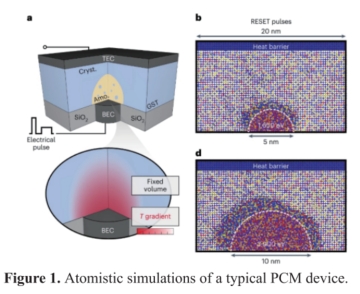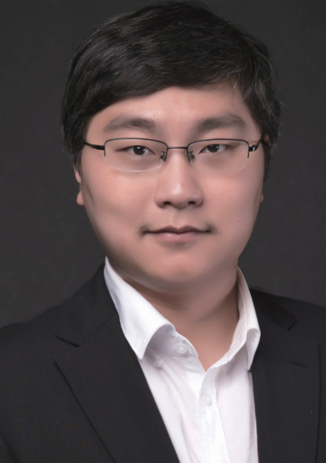Wei Zhang
Center for Alloy Innovation and Design (CAID), Xi'an Jiaotong University
EXTENDED ABSTRACT: Chalcogenide phase-change materials (PCMs) are widely applied in electronic and photonic applications, such as non-volatile memory and neuro-inspired computing. Ab initio simulations have been extensively applied to advance the understanding of PCMs for the past twenty years [l], enabling rational design of novel materials [2, 3]. In this talk, I will discuss how to combine the advantages of ab initio simulations with machine-learned molecular dynamics (MLMD) simulations and coarse-grained device simulations via the finite-difference time-domain (FDTD) method or the finite-element method (FEM) to promote the design and optimization of phase-change device structures for non-volatile electronics and photonics. For instance, by carrying out ab initio calculations, the essential input parameters, such as refractive index (n), extinction coefficient (k) and reflectivity coefficient(R), are provided for FDTD simulations of devices. Take the non-volatile display device for example, we can optimize the device parameters, such as the thickness of the top and bottom ITO layers and the middle PCM layer, to generate resonant reflections in the multilayer structure [4]. Another example is to develop machine-learned potential of high efficiency and accuracy to enable direct atomistic simulations at the device scale (Figure 1). One can compute parameters, such as temperature profiles in a mushroom cell, through atomic motions, to make direct comparisons with FEM simulations [5], which can be used to optimize the device structure and programming scheme.

Keywords: phase-change memory; multiscale simulation; device modeling
REFERENCES
[1] W. Zhang, R. Mazzarello, et al., Nat. Rev. Mater., 4, (2019) 150-168.
[2] F. Rao, Z. Song, W. Zhang, et al., Science 358, (2017) 1423-1427.
[3] K. Ding, J. Wang, F. Rao, W. Zhang, et al., Science 366, (2019) 210-215.
[4] X. Wang, W. Zhou, W. Zhang, et al., npj Comput. Mater. 9 (2023) 136.
[5] Y. Zhou, et al., Nat. Electron. (2023) doi: 10.1038/s41928-023-01030-x.

Dr. Wei Zhang is a professor in the school of materials science and engineering at Xi'an Jiaotong University, China. He received his bachelor and master degrees both at Zhejiang University, China, and his Ph.D. degree with distinction at RWTH Aachen University, Germany. His current research interests include phase-change materials for non-volatile memory and neuro-inspired computing. He has published 80+ academic papers in high-profile journals, including Science (3), Nat Mater (3), Nat Electron (2), Adv Mater (3) and so on.